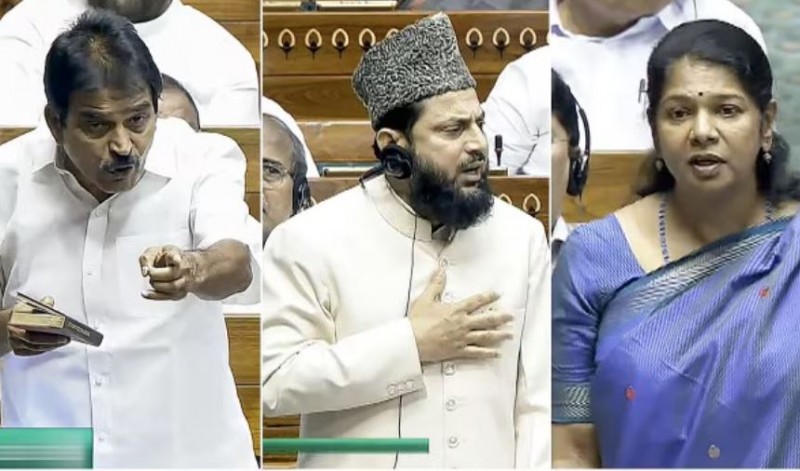
New Delhi: Ahead of the introduction of the Waqf Amendment Bill in Parliament today, BJP spokesperson Shehzad Poonawala criticized the opposition, particularly the leaders of the INDI Alliance, accusing them of opposing a bill that promotes transparency and good governance. Poonawala argued that the opposition’s stance reveals their support for "land grabbers" rather than the interests of the Muslim community.
In a video statement, Poonawala questioned why the INDI Alliance would oppose a bill designed to enhance transparency and governance within the Waqf system. He suggested that the opposition’s actions demonstrate they are not genuinely pro-Muslim but rather supportive of those who misuse Waqf properties for land grabbing.
Poonawala referenced reports from the Sachar Committee, the 9th Joint Parliamentary Committee (JPC), and requests from the Dargah Committee, emphasizing that these recommendations for changes to Waqf laws have long been supported by the Muslim community to benefit poorer Muslims. He noted that these groups have called for reforms to prevent Waqf properties from being exploited for personal gain.
Criticizing the Congress party, Poonawala alleged that their previous amendments to the Waqf laws granted the Waqf Board excessive powers, which have been misused to declare private lands as Waqf properties, often leading to unjust land seizures. He cited a recent case in the Madhya Pradesh High Court where Waqf authorities claimed ownership of various lands, including the Taj Mahal, a village in Tamil Nadu, and temple properties.
Poonawala claimed that some wealthy Muslim families, who benefit from the current Waqf system, are the ones most troubled by the proposed amendments. He highlighted that despite the Waqf Board holding around 9 lakh acres of land, its annual income is less than Rs 200 crores, indicating misuse of resources by a few politically connected families.
Earlier, Congress MPs KC Venugopal and Hibi Eden, along with the Samajwadi Party, announced their opposition to the Waqf Amendment Bill in Parliament. The BJP-led government is set to introduce the Waqf (Amendment) Bill, 2024, which aims to address issues related to the powers of State Waqf Boards, the registration and survey of Waqf properties, and the removal of encroachments. Minority Affairs Minister Kiren Rijiju is slated to present the bill in the Lok Sabha.
Congress MP K Suresh, the party's chief whip in the Lok Sabha, and IUML MP ET Muhammed Basheer have expressed concerns, arguing that the bill seeks to undermine the rights of the Waqf Board. AIMIM MP Asaduddin Owaisi also filed a motion opposing the bill, claiming it violates constitutional principles and threatens the independence of the judiciary.
The Waqf (Amendment) Bill, 2024, seeks to rename the Waqf Act of 1995 as the Unified Waqf Management, Empowerment, Efficiency, and Development Act, 1995. The bill aims to clearly define "Waqf" and ensure the creation of Waqf-alal-aulad does not infringe on women's inheritance rights. It also proposes reforms to the Waqf Board’s structure, including better representation of Shia, Sunni, Bohra, Agakhani, and other Muslim communities, and the inclusion of Muslim women and non-Muslims.
In addition, the bill seeks to establish a separate Board of Auqaf for Boharas and Aghakhanis and introduces measures to streamline the registration and management of Waqf properties. It proposes changes to the tribunal structure, enhancing oversight and enabling appeals to the High Court within 90 days.
The bill, which also includes the repeal of the Mussalman Waqf Act of 1923, is part of the government’s broader efforts to reform Waqf laws and address longstanding issues within the system.
New Zealand PM Meets Indian President Murmu: Talks Focus on Security and Trade